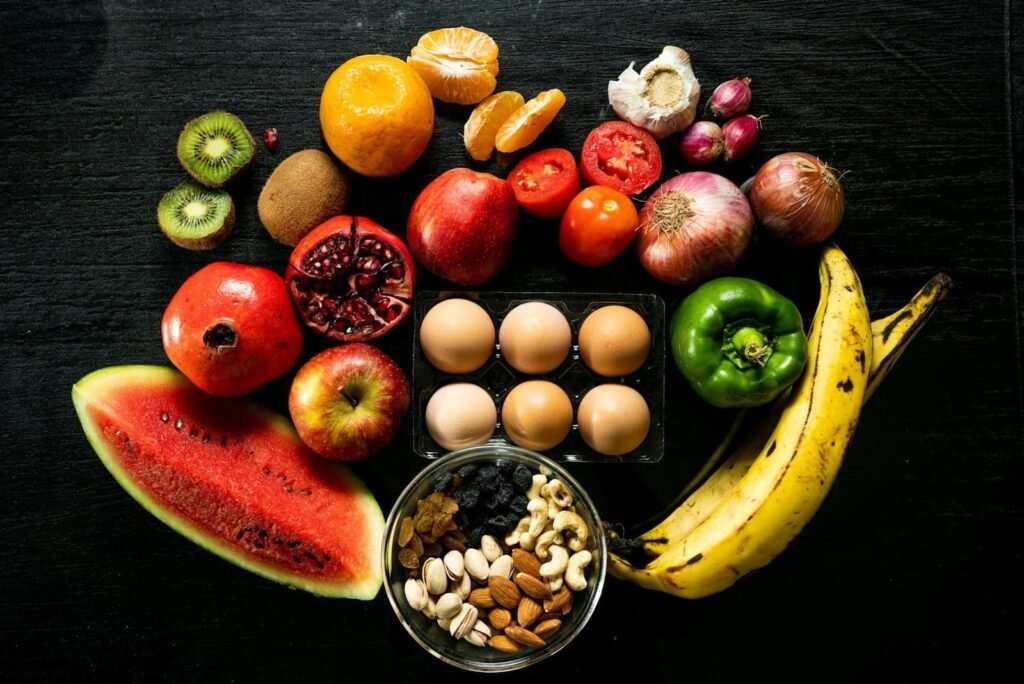Ever wonder what gives tomatoes their deep red color or garlic its pungent scent? Those bright colors, aromas, and tastes all come from powerful natural chemicals known as phytonutrients — and they do much more than just jazz up our meals.
Phytonutrients (or phytochemicals) are compounds found in fruits, vegetables, grains, herbs, and spices. They help plants endure harsh conditions — like too much sun or annoying insects — but the really impressive part? They’re really good for us, too.
Even though they aren’t considered “essential nutrients” like vitamins or minerals, phytonutrients play a major role in keeping our bodies strong and resilient. From supporting heart health and lowering cholesterol to easing menopause symptoms and boosting your immune system—these tiny plant compounds pack a serious punch.
Meet Your New Health Heroes

Phytonutrients are nature’s secret defenders.
There are thousands of phytonutrients out there, but let’s break down a few of the most powerful ones, where to find them, and why you’ll want them on your plate:
| Phytonutrient | Found In | Importance |
|---|---|---|
| Beta-Glucan | Oat bran, rolled oats, oat flour | Supports heart health |
| Capsaicin | Hot peppers | May reduce the risk of blood clots |
| Carotenoids | Carrots, sweet potatoes, pumpkin, corn, leafy greens, tomatoes, watermelon | Eye health, immune support, cancer prevention |
| Curcumin | Turmeric | Anti-inflammatory and anti-cancer properties |
| Flavonoids & Phenols | Berries, tea, dark chocolate, whole grains, red wine | Antioxidant power—fights aging and cell damage |
| Indoles & Isothiocyanates | Broccoli, kale, cabbage | May reduce risk of hormone-related cancers |
| Monoterpenes | Citrus fruits, citrus peels, essential oils | Boosts detox enzymes, helps fight carcinogens |
| Organosulfur Compounds | Garlic, onions, leeks | Supports heart health and detoxification |
| Phytic Acid | Whole grains | Prevents free radical damage, may reduce cancer risk |
| Phytoestrogens | Soy, legumes, flaxseed, whole grains | Balances hormones, may protect against certain cancers |
| Saponins | Sprouts, tomatoes, legumes | Strengthens immunity, may inhibit cancer cell growth |
| Tannins | Grapes, tea, red wine | Antioxidant protection, blocks harmful enzymes |
How Do Phytonutrients Actually Help Us?
Phytonutrients help the body in a variety of ways. Some of these are as follows:
- Acting as antioxidants to protect against cell damage
- Blocking harmful enzymes that could lead to cancer
- Boosting the immune system
- Balancing hormones
- Reducing inflammation
- Detoxifying your system
How To Get More Phytonutrients In Your Diet
Here’s the good news: You don’t need fancy supplements. Just eat real food—colorful, whole, plant-based foods. Think rainbow plates filled with fruits, vegetables, legumes, nuts, seeds, herbs, and whole grains. Variety is key since different phytonutrients offer different benefits.
A few easy ways to start:
- Add spinach or kale to your smoothies.
- Snack on carrots and hummus.
- Stir turmeric into soups or golden milk.
- Swap white rice for quinoa or brown rice.
- Sprinkle flaxseeds on your yogurt or oatmeal.
Bottom Line? Nature Knows Best
By adding more phytonutrient-rich foods into your meals, you’re not just eating better—you’re investing in your long-term health in a simple, natural way. So, next time you’re grocery shopping or cooking at home, reach for the colors, the spices, and the whole foods. Your body (and taste buds) will thank you.
Have a favorite recipe packed with phytonutrients? Share it in the comments—we’d love to see how you’re adding these natural powerhouses to your plate!
Was this helpful?
Good job! Please give your positive feedback
How could we improve this post? Please Help us.







No Comments